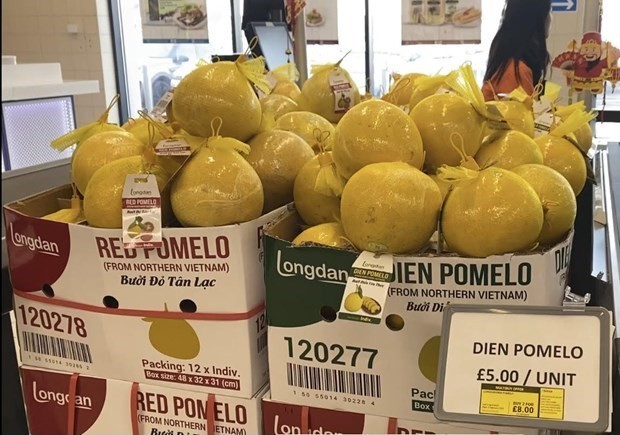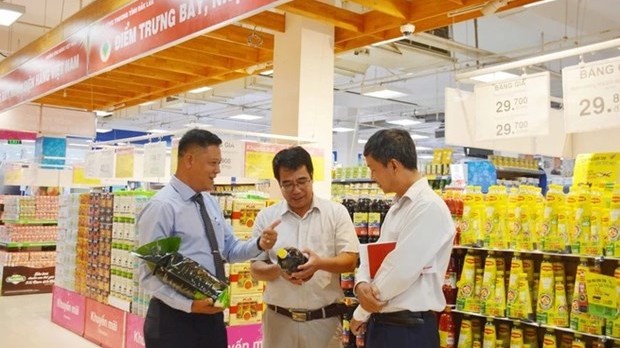 |
| Dien pomelo and Red pomelo on the shelves of Longdan supermarket in the UK (Photo: VNA) |
Foreign distribution channels have been increasingly appreciated and considered an effective export and promotion channel for products and brands, he said.
With more than 60 deals in countries around the world, the Ministry of Industry and Trade will continue to support ministries, branches and localities in advising and providing strategic guidance on market access, as well as informing and connecting Vietnamese businesses with foreign purchasing and distribution systems.
However, in order to export more, Linh said that localities needed to promote their role, focusing more on supporting products with strengths, and selecting some really potential markets and a few leading enterprises to act as a driving force for the industry to penetrate deeper into the foreign distribution system.
Exporting goods through overseas distribution systems was strongly deployed last year.
Through large distribution channels, Vietnamese goods, especially agricultural products, have been on the shelves of large supermarkets in France, Australia, Japan, and Thailand.
The goods on display are all famous agricultural products of Việt Nam such as lychee, dragon fruit, banana, and fish sauce and strictly comply with regulations on quality.
Shiotani, General Director of AEON Vietnam told An Ninh Thu Do (Capital Security) newspaper that in the past, AEON mainly imported fresh bananas from the Philippines, which made up 70% of its import volume, for the distribution system of the group.
AEON started importing bananas from Vietnam from last year and its consumers commented that Vietnamese bananas tasted better than other countries, said the director.
The representative of AEON also said that besides the reasons of quality and price, Vietnamese banana production companies for export had a circular production model.
In addition to planting bananas, they have a model of aquaculture and cattle breeding and fertiliser for banana trees.
With this closed model, the amount of waste was almost zero, he said.
“In the past, when it comes to imported goods, we focused on price, quality and supply chain. But now and in the future, supplier selection criteria of us and the whole world has changed. It is whether the supplier can build a sustainable production model or not," said Shiotani./.





















































